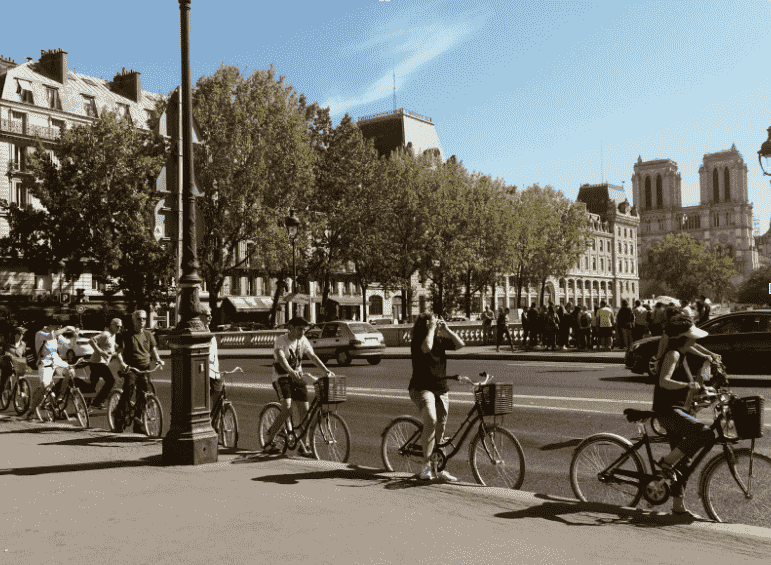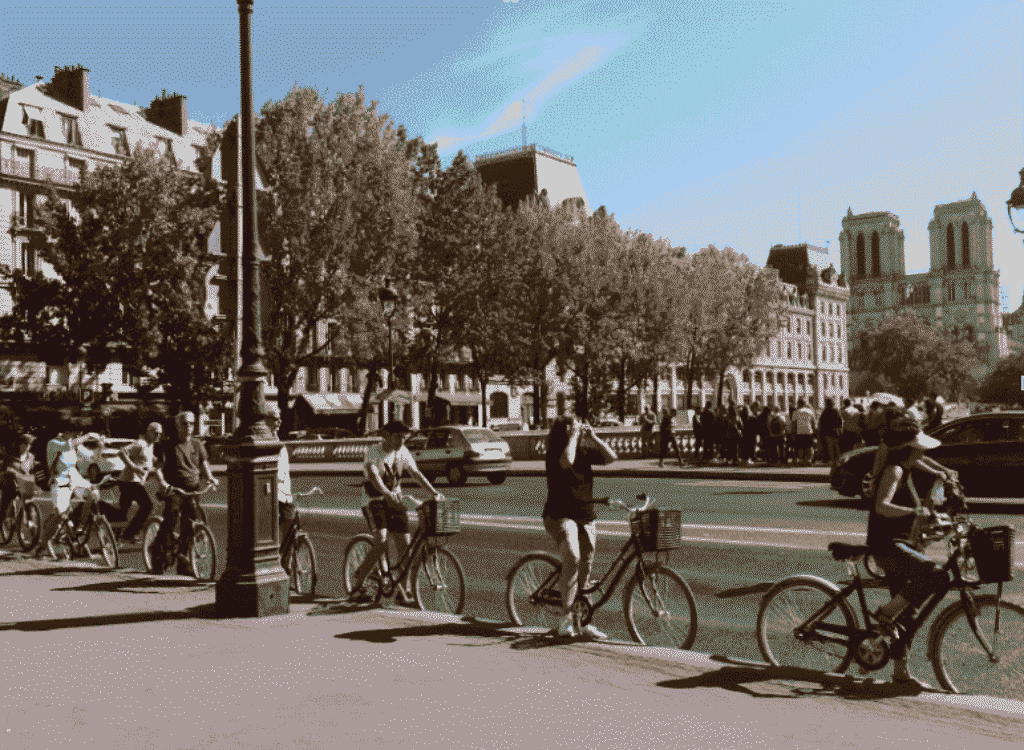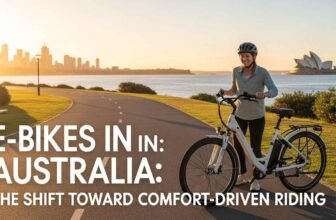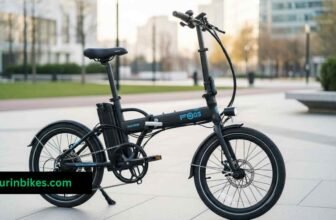
Imagine a commute where your morning doesn’t involve sitting in traffic jams and where your daily journey to work doubles as your daily workout. This isn’t just a utopian pipe dream, it’s the reality we could create if cycling became the primary mode of transportation.
As urban centers grapple with pollution, congestion, and rising healthcare costs, plus a range of other seemingly insurmountable problems, the humble bicycle emerges as a powerful solution that has the potential to transform everything. Now, let’s take a speculative look at what would (probably) happen if almost everyone swapped their cars for bikes.

A Market with Options
Let’s go through Econ 101 first. If cycling becomes the primary way to travel, it would create a welcome surge in the world’s bike market. This would encourage an increase in options, whether you’re looking for a commuter-friendly model, a budget beater, or a high-performance e-bike.
And it’s not all theory, either. Cities like Amsterdam and Copenhagen are noticeably bike-first, with citizens often opting for bikes over cars because they have options.
It’s not cheap and low-quality vs. unaffordable high-end bikes only, but a decent bike for every budget, based on individual personal requirements. Finding a bike that fits an individual is easy, for example, because the maturity of the market translates to variety and competitive prices.
The Effect on the Environment
If cycling were to become the default mode of transport, the environmental gains would be multiple. Let’s take a closer look:
Lower Emissions
Replacing short car journeys with a bike could cut global carbon dioxide emissions by millions of tons per year. And yes, that’s just your trip to your local supermarket or taking the kids to school, we’re not even including road trips or long commutes.
That’s because transportation currently accounts for 28% of all US greenhouse gas emissions, for example. And cars and small trucks account for almost 60% of that figure. Compared to a car, a bike will save around 1,600 pounds of carbon dioxide emissions.
Cleaner Air and Less Noise Pollution
Cars may make things a little more convenient, but they also negatively impact the environment for an individual’s health.
Air pollution is tied to smog and fine particles, which in turn lead to asthma, respiratory illnesses, and premature deaths. Where cycling is commonplace, on the other hand, air quality is demonstrably better, with improved health outcomes as a result.
Further, in bike-first neighborhoods, the reduction of constant engine sounds and beeping creates quieter streets, improving sleep quality for residents and reducing stress levels.
Healthier Bodies, Healthier Minds
Cycling means that daily exercise is a built-in component of your day, whether you’re cycling to work or school, it’s fighting that sedentary lifestyle that affects practically everyone.
Regular cycling has demonstrable benefits to your cardiovascular health, too. It lowers the risk of heart disease, type 2 diabetes, and even some cancers (yes, really!). In short, cycling helps us live longer. The physical benefits are tremendous, but they’re not limited to just that.
Cycling is also positive for our mental health, something that is finally getting the deserved attention. Going on your bike reduces stress levels, improves mood, and boosts focus, helping people feel much sharper throughout the working day.
Cities Transformed
The way our cities function would change dramatically if cycling were to dominate the way we travel. First, more space. Streets built for bikes instead of large SUVs will feature less congestion, as well as increased room for pedestrians, green areas, and community spaces.
You’re also going to lower your infrastructure costs. Bike lanes are cheaper to build and maintain than traditional car lanes. And it’s not just highways; just think of the parking lots alone!
Bikes are also not as dangerous as cars, no matter what the commercials will tell you. Studies back that up, suggesting that bike-friendly infrastructure leads to lower traffic fatalities. Even the presence of bikes and an accompanying awareness of their right to the road can cause road accidents to go down, even in cities where the car is still the dominant transport option.
Let’s Pedal Towards a Better Future
It’s cheesy, but it’s true: pedaling leads to a better future. Healthier people, greener cities, a more stable climate, less pollution, and an improved city landscape.
It’s a simple solution with huge potential, some would say obvious, but it’s not always easy. People are used to their cars, and lobbying groups are strong. But even if we just forego a single car journey from our week, that would already make a big difference.

SEO Analyst & Bike Research Lead at TurinBikes
With over 5.5 years of experience in local & international SEO and affiliate marketing, Sachin has helped media sites and local businesses grow through data-driven strategies. He runs TurinBikes solo, creating transparent, evidence-based guides using thousands of verified user reviews, manufacturer specs, studies, and surveys – no personal ride tests, no sponsored bias. Focus: Honest recommendations for budget e-bikes and everyday riding needs. Full bio Click Here






